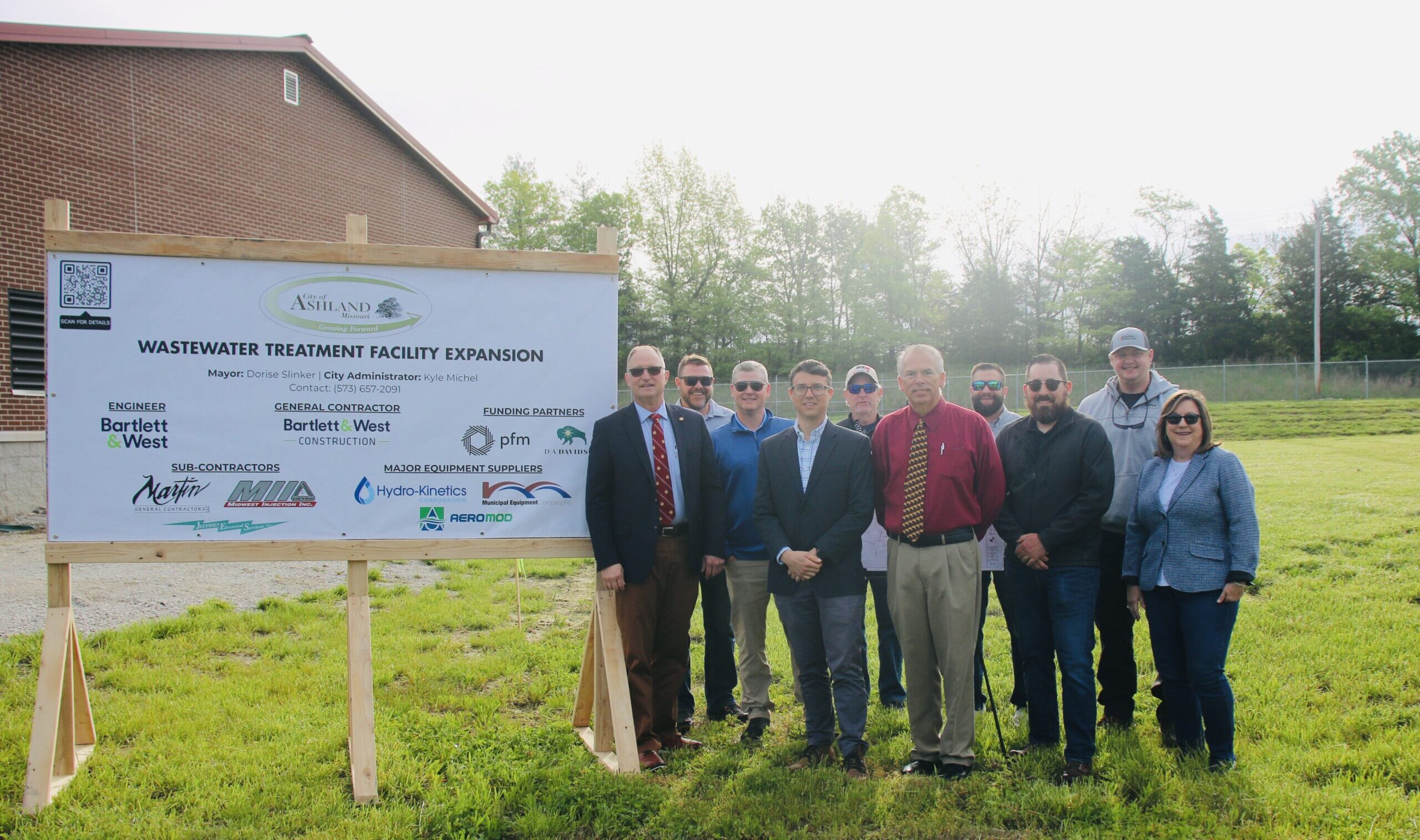
The new City of Ashland wastewater treatment facility expansion project broke ground in May 2025 and is expected to be complete by the end of summer 2026
Ashland, Mo. (July 10, 2025) – Ashland residents will see a 23% increase in their sewer bills each year for the next three years as the city moves forward with a major wastewater treatment facility (WWTF) expansion—despite losing out on $11 million in requested state funding due to a veto by Governor Mike Kehoe.
The expansion project, which broke ground in May 2025, will boost capacity from 600,000 gallons per day to 1.6 million gallons, with future potential to treat up to 2.6 million gallons daily. The upgrade is essential to meet regulatory compliance and address treatment concerns, as the existing facility is already operating near or above capacity.
City Administrator Kyle Michel emphasized that the project was never dependent on state funds to proceed. “The wastewater treatment facility project was planned and started under the assumption that the city would not receive state funding,” Michel said. “But state funding would have helped reduce or eliminate a portion of those rate increases.”
A revenue sufficiency study completed in 2024 identified necessary rate adjustments to finance the project. The Ashland Board of Aldermen approved the new rate schedule in April 2025, effective May 1, with two additional increases scheduled for May 2026 and May 2027. On average, sewer bills will rise by 23% annually to cover the debt service.
Governor Kehoe’s June 30 budget veto cut over $2.2 billion in funding across 208 line items, including $11 million that had been earmarked for Ashland’s sewer project. Other Boone County projects were also affected, including $2 million for Highway 63 upgrades in Columbia and $500,000 for local stormwater improvements.
The city continues to seek additional state and federal funding sources to ease the financial burden on ratepayers. However, Michel noted that the city cannot borrow against hypothetical future developments and must rely on current utility customer revenue. While most subdivisions were built between 2016 and 2019, Michel says that few new projects are underway, limiting the financial contributions from new development, but added that the city is looking into shifting more financial burden onto future developments.
“In the coming year, the City will review other sewer-related fees, including development connection fees, to ensure future projects pay a fairer share. These adjustments could reduce future utility rate increases for existing customers if new developments generate additional revenue for debt prepayment.”
Michel also says that voters declined to approve participation in the State Revolving Fund program in 2023, which would have allowed the city to borrow at a reduced interest rate. As a result, Ashland is financing the project through a public bond sale at higher market rates—currently estimated between 5% and 7%—further increasing the long-term cost.
Despite the financial strain, city officials remain committed to the project, which they say is critical for the future of Ashland. “This expansion is necessary not just for growth, but to ensure continued compliance with environmental regulations and protect public health,” Michel said.
For more information, residents may contact Kyle Michel at kmichel@ashlandmo.us or 573-657-2091.







Facebook Comments